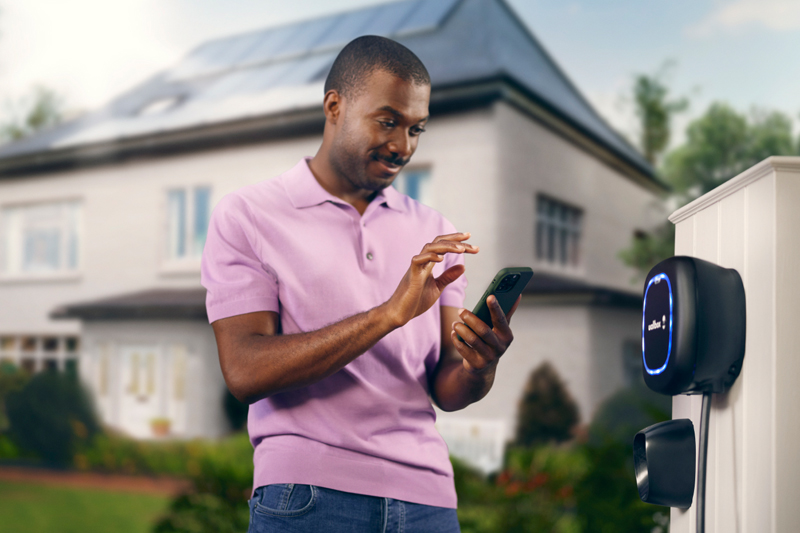
The team at Wallbox identifies the reasons why the utilisation of renewables will drive the EV revolution in the future.
The British government has set an official target for solar power, proposing that the UK develops 70GW of solar generation by 2035 compared to the current figure of 14GW. In other words, the UK’s net zero prospects calls for a “rooftop revolution” to enable the decarbonisation of the country.
According to the latest MCS (Microgeneration Certification Scheme) installations data, there are approximately 1.2 million UK homes with solar panel installations, which means that 4.1 percent of the 29 million homes in the UK are generating electricity from solar panels.
These numbers testify to the country’s steady growth in recent years, with room for improvement in the near future, placing the UK’s progress on par with other countries leading the sustainable transition like Sweden and Norway.
The UK solar market is maturing at a rapid rate, faster than most countries globally. Given their natural synergies, this is providing a huge opportunity for the EV charging market.
Help starts at home
As 80 percent of charging takes place at home, as specified by Wallbox, the UK government is introducing a New Smart Charging Plan for Electric Vehicles (EVs), with the aim to make home charging the primary EV charging method within the next two years.
The government is promoting smart charging as a cost-saving option for EV drivers, as those who do significant miles can save up to £1,000 a year. Aside from individual cost savings, by unlocking flexibility features, smart charging can relieve pressure on the grid to reduce electric system costs, resulting in savings for all.
It is, therefore, essential that EVs fit seamlessly into people’s everyday lives and offer direct benefits to the user. What will ultimately democratise and drive EV adoption long-term are smart EV chargers capable of supporting sophisticated energy management systems, particularly those that can integrate EV charging with renewable energy systems, like Wallbox’s Eco-Smart.
Wallbox chargers are built with advanced energy intelligence software which includes solar charging functionality, Eco-Smart. This feature lets drivers with home PV installations charge their car either entirely with solar power or with excess solar production, making the charge more sustainable and significantly cheaper.
A new ‘bidirection’
The next step, and what Wallbox sees as the future of the electrical vehicles, is bidirectional charging. This allows you to charge an EV when there is an excess in solar or when the energy is the cheapest, and later discharge power back to the home or grid during hours of peak energy use.
A family with a bidirectional EV charger, like Quasar, can easily save 50%+ on their home energy bill at average 2022 prices (15ct/kWh off-peak, 32ct/kWh peak), by charging the EV battery when energy is cheaper and using the energy in the home when prices are higher.
As the UK’s EV adoption increases so too will its need for sophisticated smart EV chargers. Sophisticated intelligence like Wallbox’s Eco-Smart, enables customers to be in control of their energy consumption, live more sustainably and make better use of their growing investment in solar.
Sources:
– www.ft.com/content/3e708179-f8a8- 481a-857d- 421589c59bcc
– www.theecoexperts.co.uk/solar-panels/ popularity-of-solar-power
– www.edie.net/uk-government-sets-outplan- to-make-smart-ev-charging-thenorm- by-2025/
To get more details on Wallbox’s full range of EV chargers, click here










